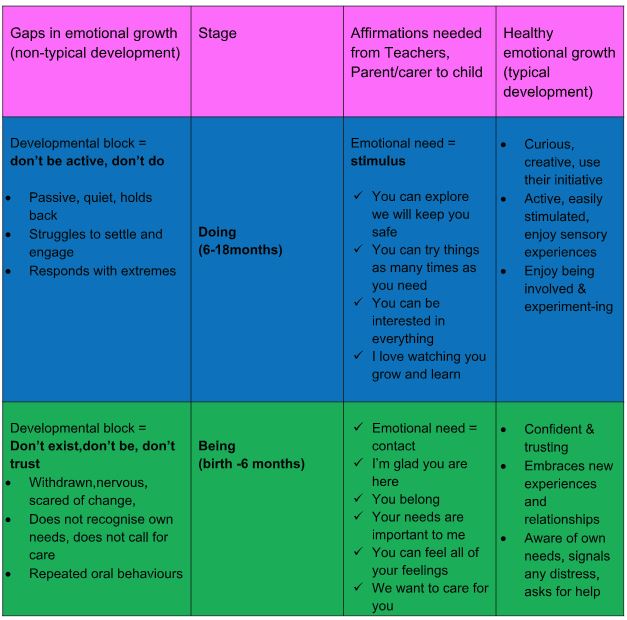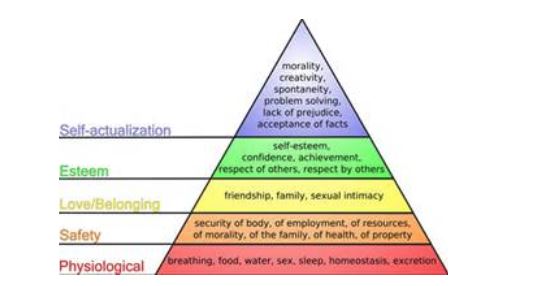
05 Jun Supporting children with hindered emotional development and raising self-esteem
As some of you might recall, form a psychology blog that I sent a few months ago that emotional development begins with the fundamental stages of being and doing. These stages are essential for young people to have a sense of self and feel that they are capable to apply themselves and learn.
If children don’t receive the attributions required to fulfil each stage, then emotional, developmental blocks occur. As teaching staff it is important that we provide the message (attributions) to non-typically developing children & young people in order to activate stronger senses of self, and confidence to experiment and try with their learning in the classroom and at home.

Levin’s Cycle of Emotional Development
As staff we can support a young person’s emotional development and self-esteem through our words, actions, reassurance, appropriate expectations and praise.
If we marry this evidence on emotional development with Maslow’s pyramid of need, we can also see that these two emotional blocks could also hinder other aspects of personal growth. Feelings of safety (high levels of anxiety) and furthermore sense of belonging and self-esteem ultimately prevents young people from feeling that they are capable to learn.

Maslow’s Pyramid of Need
Little actions that can help in a big way!
- Choose some attributions from the lists and incorporate them in to you teaching approach with non-typically developing children
- Nudge young people into embracing learning with lots of reassurance and in bite size stages
- Make mistakes an acceptable part of learning. Many young people don’t attempt work not because they can’t do it, but because they are terrified of failing
- Keep your expectations high but realistic, give the message that you believe in each young person
- Find things in your lesson that a young person can feel proud of. This internalises actions and associates them with a feeling. This feeling of pride and achievement then act as a hook to hang further praise
- Praise and then praise some more
Next time: The psychology of anger.


